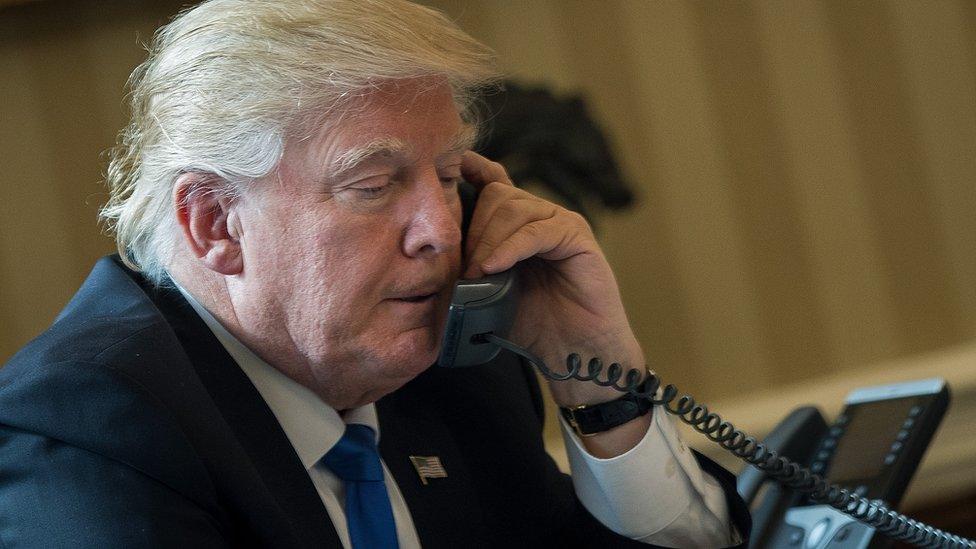Ukraine conflict: Rebel commander killed in bomb blast
- Published
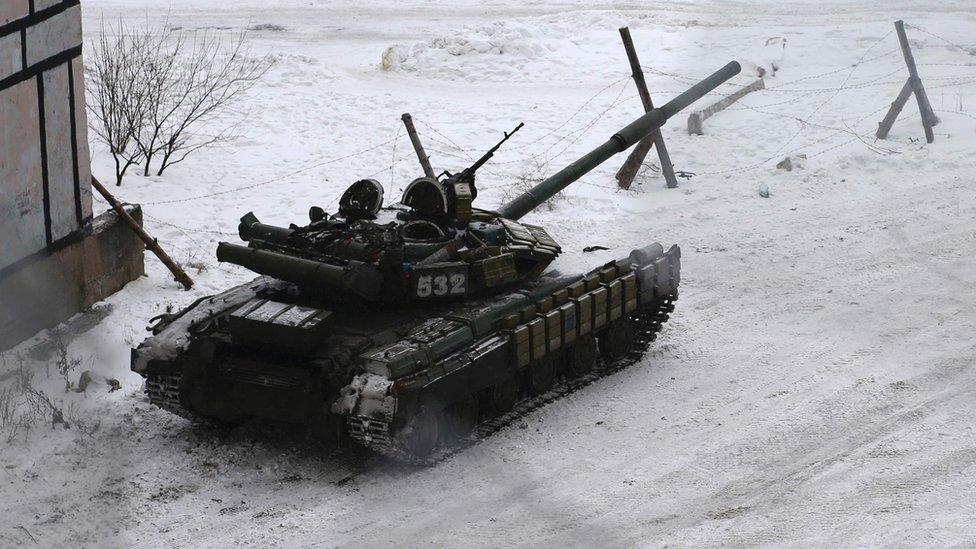
A Ukrainian forces tank in the eastern town of Avdiivka, which was hit by heavy shelling this week
A senior commander with pro-Russian rebel forces in eastern Ukraine has been killed in a car bomb attack in Luhansk, rebels say.
Oleg Anashchenko was de facto defence minister of the self-proclaimed Luhansk People's Republic (LNR).
The rebels blamed Ukraine for the "act of terrorism". Kiev denied any involvement in Saturday's blast.
It follows the bloodiest week of clashes between Ukrainian troops and Russian-backed insurgents since 2015.
Later on Saturday Ukrainian President Petro Poroshenko discussed the crisis over the phone with US President Donald Trump.
"The sides expressed deep concern because of the escalation of tension and the worsening of the humanitarian situation," a statement from Mr Poroshenko's spokesman said.
He added that the two leaders emphasised the need for a full cease-fire.

Read more

Rebel spokesman Andrey Marochko said "Ukrainian secret services" were suspected of being behind the attack, which he said was aimed at "destabilising the republic".
"We will track down the perpetrators of this monstrous act and they will receive the appropriate punishment," he said.
"There is an ugly persistence to Europe's forgotten war" - Tom Burridge reports
Meanwhile, officials in Kiev suggested Mr Anashchenko's death may be the result of an internal power struggle among rebel leaders.
A number of prominent commanders have been killed in the LNR and the neighbouring self-proclaimed Donetsk People's Republic (DNR) in recent months.
This week has seen an escalation in the violence in eastern Ukraine, with a number of attacks that have reportedly left at least 35 people dead. There are fears that the actual death toll could be much higher.
The Ukrainian authorities and the rebels blame each other for the upsurge in violence.
Earlier this week, the government-held frontline town of Avdiivka in eastern Ukraine was hit by heavy shelling. The town, whose population is estimated to be about 22,000 people, was left without water and electricity in freezing conditions.
Russia and Ukraine, along with the rebels on Wednesday, signed up to calls for a ceasefire and the withdrawal of heavy weapons from Avdiivka by Sunday.
But fighting continued late on Saturday.
The conflict in eastern Ukraine erupted after Russia annexed Ukraine's southern Crimea peninsula in March 2014.
A ceasefire was eventually agreed in February 2015 but there have been frequent violations. The latest truce began on 23 December.
The US and EU imposed sanctions on Russia in response to its actions in eastern Ukraine and Crimea.
Russia has repeatedly denied sending troops and weapons into eastern Ukraine, but admits that Russian "volunteers" fight alongside the rebels.

- Published7 August 2016
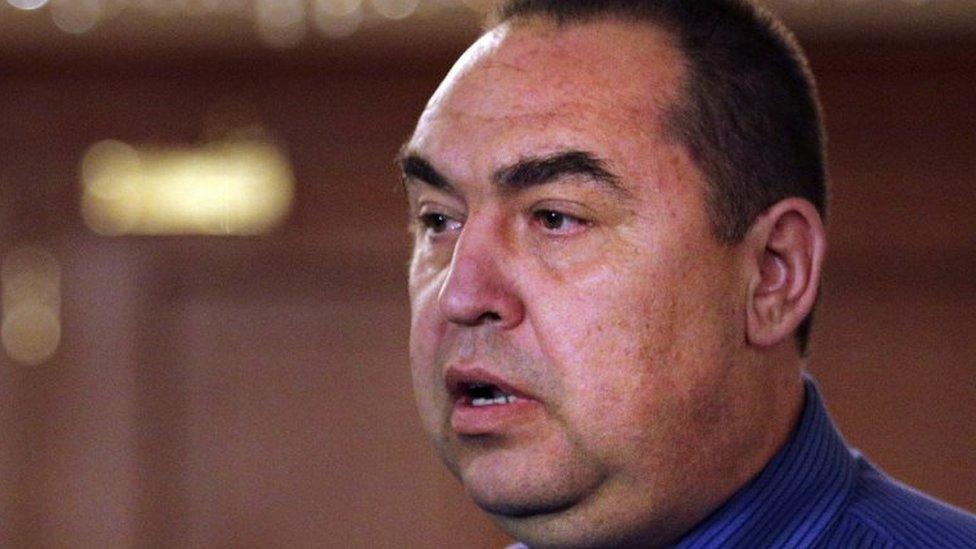
- Published11 January 2017
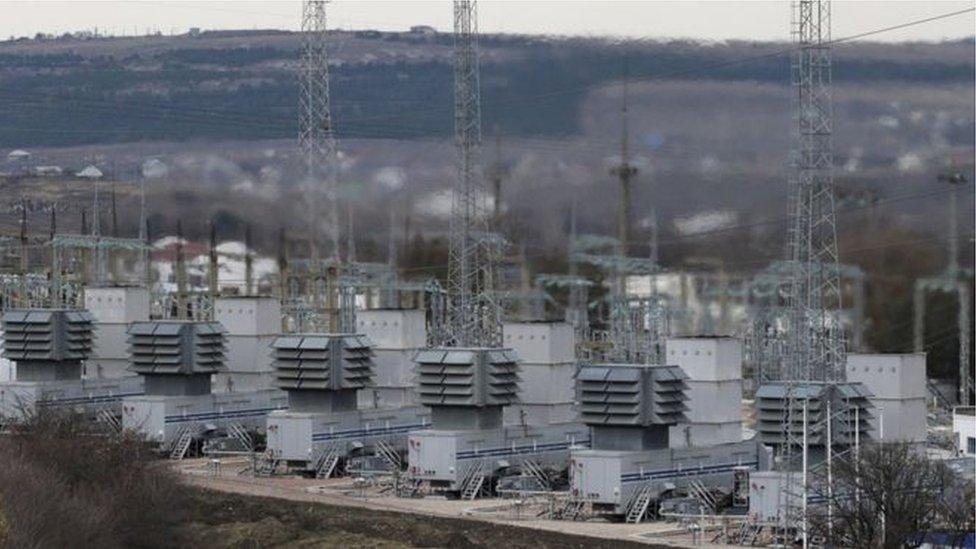
- Published19 December 2016
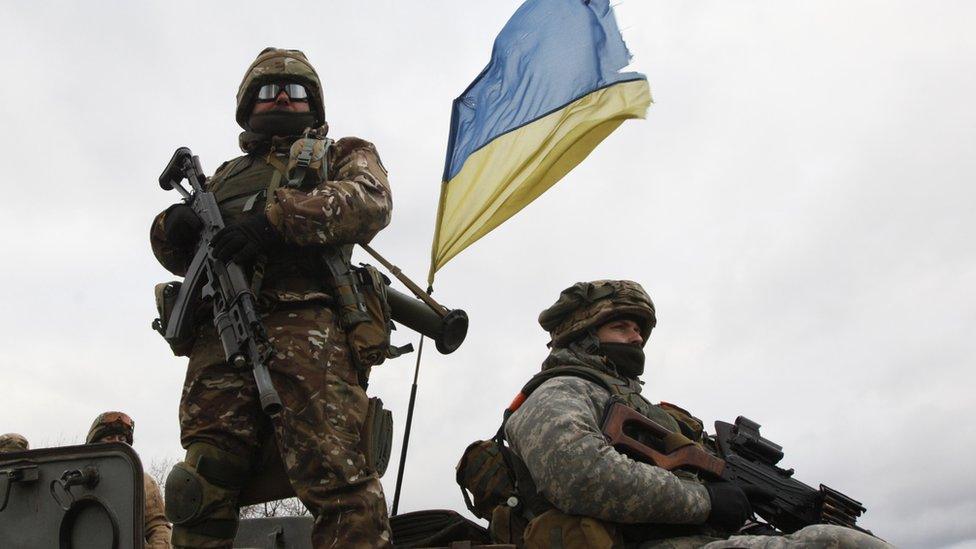
- Published28 January 2017
